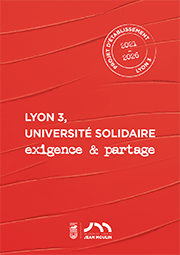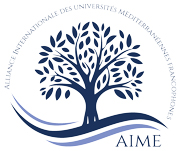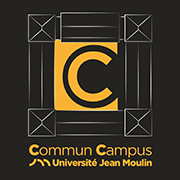AccueilRechercheProgrammes et productions scientifiquesThèsesThèses soutenuesThèses soutenues - 2006-2021Thèses soutenues - 2015
-
Partager cette page
- Recherche,
ANDOLFATTO Lorenzo
Paper Worlds : The Chinese Utopian Novel at the Beginning of the Twentieth Century, 1902-1910
Publié le 11 septembre 2015 – Mis à jour le 13 octobre 2015
Thèse en Etudes transculturelles soutenue le 8 septembre 2015 en cotutelle avec l'Université Ca'Foscari di Venezia.
A travers cette recherche, nous souhaitons identifier et définir le genre du
roman utopique de la fin des Qing via la lecture attentive d'une sélection de
romans chinois écrits entre 1902 et 1910. A partir de l'analyse de romans tels
que Xin Zhongguo weilai ji de Liang Qichao (1902 ), Shizi hou de Chen Tianhua
(1905), Xin shitou ji de Wu Jianren (1908) et Xin Zhongguo de Lu Shi'e (1910),
nous pensons qu'un tel genre littéraire puisse être considéré à la fois comme
un produit particulier du climat de fragmentation socio-historique qui
caractérise la période de la fin des Qing, et comme un prisme utile à sa
compréhension. La structure de cette thèse est celle d'un itinéraire critique à
travers l’imaginaire utopique chinois moderne. Cet itinéraire est débuté par la
traduction de l’histoire courte Xinnian Meng, écrite par Cai Yuanpei en 1905. Le
corps de cette recherche est divisé en cinq chapitres: dans le premier, la
légitimité de la catégorie générique de "wutuobang xiaoshuo" comme outil
critique valable est questionnee; le deuxième chapitre concerne les deux
romans inachevés de Liang Qichao et Chen Tianhua, dont l'état
d’«incomplétude» est utilisé comme métaphore pour la compréhension de la
construction utopique; le troisième chapitre touche à la relation entre le roman
utopique de la fin des Qing et ses modèles étrangers; enfin, dans les deux
derniers chapitres, les éléments critiques développés dans les sections
précédentes de la thèse sont appliqués à la lecture attentive de Xin shitou ji de
Wu Jianren et de Xin Zhongguo de Lu Shi'e, deux des romans les plus
intéressants écrits durant cette période.
With this research it is our intention to identify and define the genre of the late
Qing utopian novel from the close reading of a selection of Chinese novels
written between 1902 and 1910. With the analysis of novels such as Liang
Qichao's Xin Zhongguo weilai ji (1902), Chen Tianhua's Shizi hou (1905), Wu
Jianren's Xin shitou ji (1908) and Lu Shi'e's Xin Zhongguo (1910), we believe
that such a literary genre can be considered both as a peculiar product of the
climate of socio-historical fragmentation that characterises the late Qing
period, and as a useful lens for its understanding. The structure of this thesis is
that of a critical itinerary within the Chinese modern utopian imaginary. This
itinerary is introduced by the translation of the short story Xinnian meng,
written by Cai Yuanpei in 1905. The body of this research is divided into five
chapters: in the first one, the legitimacy of the generic category of “wutuobang
xiaoshuo” as a viable critical tool is put under question; the second chapter
concerns the two unfinished novels by Liang Qichao and Chen Tianhua, whose
condition of “incompleteness” is adopted as metaphor for the understanding of
the utopian construct; the third chapter concerns the relation between the late
Qing utopian novel and its foreign models; while in the last two chapters, the
critical framework developed in previous sections of the thesis is applied to the
close reading of Wu Jianren's Xin shitou ji and Lu Shi'e's Xin Zhongguo, two of
the most interesting novels written in this period.
Mots-clés : Littérature moderne chinoise, littérature utopique, modernité littéraire chinoise, science-fiction chinoise, Liang Qichao ; Wu Jianren ; Lu Shi'e ; Chen Tianhua ; Xin Zhongguo weilai ji ; Xin Zhongguo ;roman utopique de la fin des Qing via la lecture attentive d'une sélection de
romans chinois écrits entre 1902 et 1910. A partir de l'analyse de romans tels
que Xin Zhongguo weilai ji de Liang Qichao (1902 ), Shizi hou de Chen Tianhua
(1905), Xin shitou ji de Wu Jianren (1908) et Xin Zhongguo de Lu Shi'e (1910),
nous pensons qu'un tel genre littéraire puisse être considéré à la fois comme
un produit particulier du climat de fragmentation socio-historique qui
caractérise la période de la fin des Qing, et comme un prisme utile à sa
compréhension. La structure de cette thèse est celle d'un itinéraire critique à
travers l’imaginaire utopique chinois moderne. Cet itinéraire est débuté par la
traduction de l’histoire courte Xinnian Meng, écrite par Cai Yuanpei en 1905. Le
corps de cette recherche est divisé en cinq chapitres: dans le premier, la
légitimité de la catégorie générique de "wutuobang xiaoshuo" comme outil
critique valable est questionnee; le deuxième chapitre concerne les deux
romans inachevés de Liang Qichao et Chen Tianhua, dont l'état
d’«incomplétude» est utilisé comme métaphore pour la compréhension de la
construction utopique; le troisième chapitre touche à la relation entre le roman
utopique de la fin des Qing et ses modèles étrangers; enfin, dans les deux
derniers chapitres, les éléments critiques développés dans les sections
précédentes de la thèse sont appliqués à la lecture attentive de Xin shitou ji de
Wu Jianren et de Xin Zhongguo de Lu Shi'e, deux des romans les plus
intéressants écrits durant cette période.
With this research it is our intention to identify and define the genre of the late
Qing utopian novel from the close reading of a selection of Chinese novels
written between 1902 and 1910. With the analysis of novels such as Liang
Qichao's Xin Zhongguo weilai ji (1902), Chen Tianhua's Shizi hou (1905), Wu
Jianren's Xin shitou ji (1908) and Lu Shi'e's Xin Zhongguo (1910), we believe
that such a literary genre can be considered both as a peculiar product of the
climate of socio-historical fragmentation that characterises the late Qing
period, and as a useful lens for its understanding. The structure of this thesis is
that of a critical itinerary within the Chinese modern utopian imaginary. This
itinerary is introduced by the translation of the short story Xinnian meng,
written by Cai Yuanpei in 1905. The body of this research is divided into five
chapters: in the first one, the legitimacy of the generic category of “wutuobang
xiaoshuo” as a viable critical tool is put under question; the second chapter
concerns the two unfinished novels by Liang Qichao and Chen Tianhua, whose
condition of “incompleteness” is adopted as metaphor for the understanding of
the utopian construct; the third chapter concerns the relation between the late
Qing utopian novel and its foreign models; while in the last two chapters, the
critical framework developed in previous sections of the thesis is applied to the
close reading of Wu Jianren's Xin shitou ji and Lu Shi'e's Xin Zhongguo, two of
the most interesting novels written in this period.
Xin shitou ji ; Shizi hou
Keywords : modern Chinese literature, utopian literature, Chinese modernity, Chinese science fiction, Liang Qichao ; Wu Jianren ; Lu Shi'e ; Chen Tianhua ; Xin Zhongguo weilai ji ; Xin Zhongguo ; Xin shitou ji ; Shizi hou
Directeur de thèse : Gregory LEE
Marco CERESA
Membres du jury :
- Maria Franca SIBAU, Maître de conférences HDR, Emory University
- Nathaniel ISAACSON, Maître de conférences HDR, Université NC State University
- Florent VILLARD, Maître de conférences, Université Jean Moulin Lyon III
- Frederico GRESELIN, Professeur des universités, Università Ca’Foscari di Venezia
- Barbaro BISETTO, Professeur associé, Università degli Studi Milano Bicocca
- Isabella FALASCHI LEVY, Maître de conférences, Université de Lille 3
- Gregory B. LEE, Professeur des universités, Université Jean Moulin Lyon III
- Marco CERESA, Professeur des universités, Université Ca’Foscari di Venezia
Président du jury : Frederico GRESELIN
Mention : Très honorable avec les félicitations
Equipe d'accueil : IETT
Documentation
Mise à jour : 13 octobre 2015







